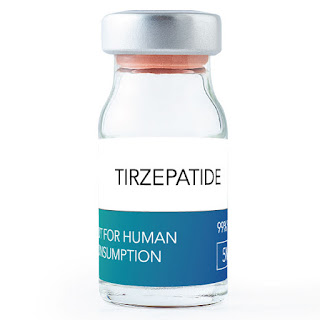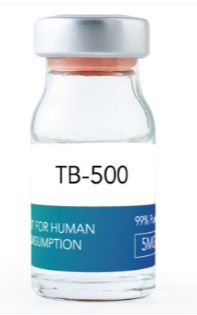What is Tirzepatide Peptide and How Does it Work for Diabetes Management?
Diabetes is a chronic health condition that affects millions of people worldwide. It is characterized by high blood sugar levels that result from the body's inability to produce or use insulin effectively. Diabetes management involves keeping blood sugar levels under control to prevent complications such as heart disease, kidney failure, and nerve damage. There are various medications available for diabetes management, including Tirzepatide Peptide, which is a newer medication that has shown promising results in clinical trials.
What is Tirzepatide Peptide?
Tirzepatide Peptide 5mg is a medication that is currently in development for the treatment of type 2 diabetes. It is a dual glucose-dependent insulinotropic polypeptide (GIP) and glucagon-like peptide-1 (GLP-1) receptor agonist. This means that Tirzepatide Peptide works by increasing insulin secretion and decreasing glucagon secretion, which leads to lower blood sugar levels.
Tirzepatide Peptide is administered subcutaneously once a week and is currently being studied in clinical trials to determine its safety and efficacy in diabetes management. The medication is expected to be available for clinical use in the near future.
How Does Tirzepatide Peptide Work for Diabetes Management?
Tirzepatide Peptide works by stimulating the production of insulin and reducing the production of glucagon. Insulin is a hormone that is produced by the pancreas and helps to regulate blood sugar levels by transporting glucose from the bloodstream into cells where it can be used for energy.
Glucagon, on the other hand, is a hormone that is produced by the pancreas and raises blood sugar levels by stimulating the liver to release stored glucose. In people with type 2 diabetes, the body does not produce enough insulin or cannot use insulin effectively, which leads to high blood sugar levels. You can also buy Sermorelin 2MG.
Tirzepatide Peptide works by activating the GIP and GLP-1 receptors in the pancreas, which leads to increased insulin secretion and decreased glucagon secretion. This helps to lower blood sugar levels and improve glycemic control in people with type 2 diabetes.
Clinical Trials of Tirzepatide Peptide
Tirzepatide Peptide has been studied in several clinical trials to determine its safety and efficacy in diabetes management. In a phase 2 trial, Tirzepatide Peptide was shown to significantly reduce HbA1c levels (a measure of blood sugar control) compared to placebo and other diabetes medications.
In a phase 3 trial, Tirzepatide Peptide was compared to insulin glargine (a commonly used insulin medication) in people with type 2 diabetes who had not achieved adequate glycemic control with other medications. Tirzepatide Peptide was found to be non-inferior to insulin glargine in reducing HbA1c levels and was associated with less weight gain and fewer episodes of hypoglycemia (low blood sugar).
You can also check out these: -
Side Effects of Tirzepatide Peptide
Like all medications, Tirzepatide Peptide can cause side effects. In clinical trials, the most common side effects were nausea, vomiting, diarrhea, and injection site reactions. These side effects were generally mild to moderate in severity and resolved on their own or with supportive care.
Less common side effects of Tirzepatide Buy Peptides Usa include pancreatitis (inflammation of the pancreas), hypoglycemia (low blood sugar), and allergic reactions. It is important to talk to your doctor about any concerns you may have about the safety of Tirzepatide Peptide.



Comments
Post a Comment